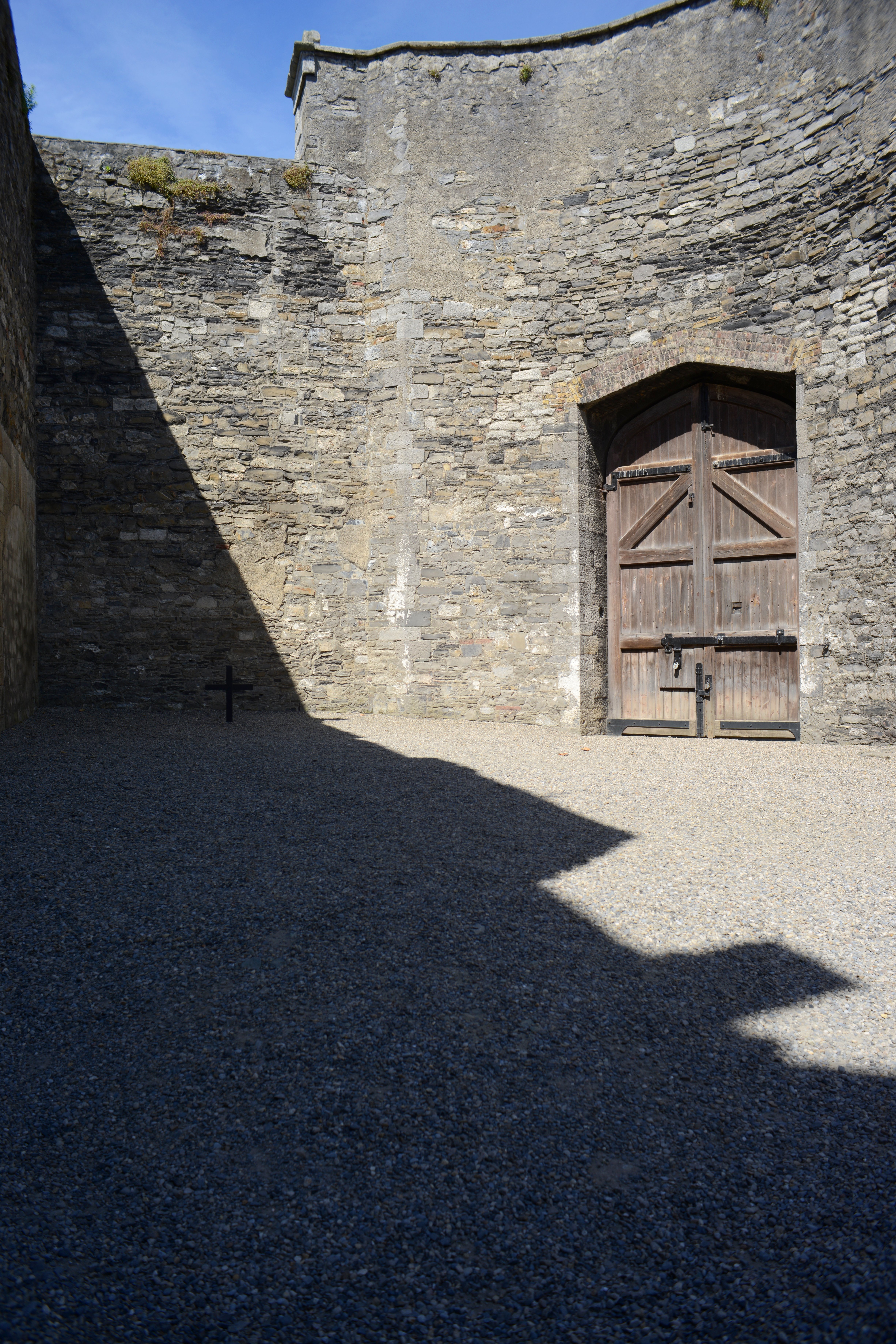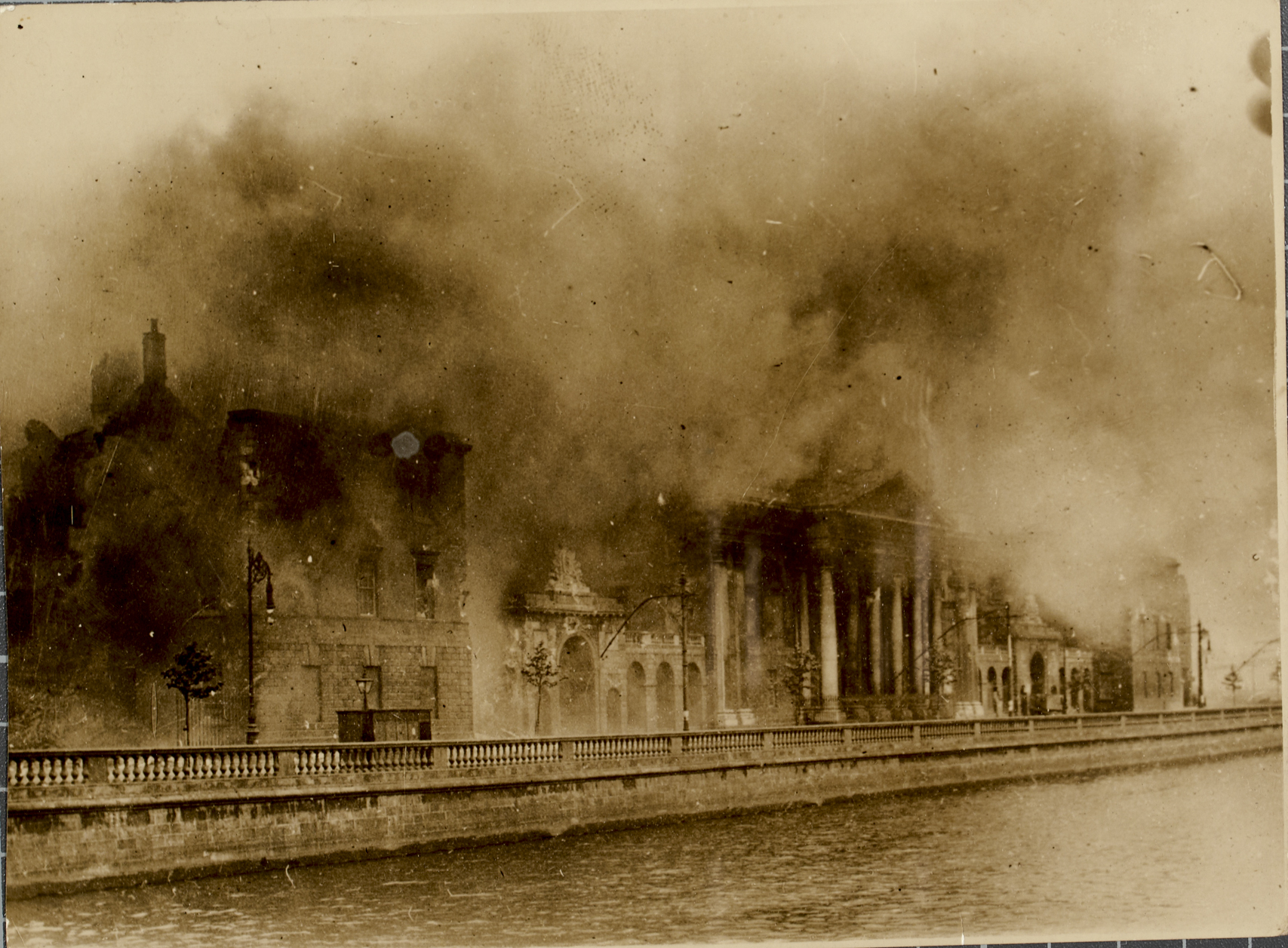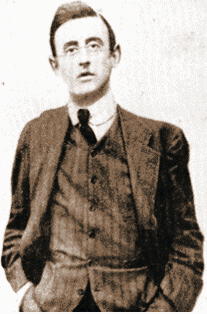|
Mary McLoughlin
Mary McLoughlin (1901–1956) was one of the women who actively served in the 1916 Easter Rising. The younger sister of the famed "Boy Commandant General" Seán McLoughlin (communist), Sean McLoughlin, at fifteen years old, she served as a dispatcher during the uprising, running messages between the various outposts held by the rebels. She is one of about 2000 participants of the Easter Rising who gave witness statements to document the events in the 1950s, after Republic of Ireland, Ireland gained its independence. Background McLoughlin was born in a working-class neighborhood of Dublin, one of the six children of Patrick and Christina McLoughlin. Patrick "Ruggie" McLoughlin was a coal laborer and active union organizer. He took part in the Dublin lock-out of 1913, and was one of the founders of the Irish Transport and General Workers' Union (ITGWU). Union work became a family tradition for the following generations as well. Christina was an ardent Irish republicanism, repub ... [...More Info...] [...Related Items...] OR: [Wikipedia] [Google] [Baidu] |
Easter Rising
The Easter Rising ( ga, Éirí Amach na Cásca), also known as the Easter Rebellion, was an armed insurrection in Ireland during Easter Week in April 1916. The Rising was launched by Irish republicans against British rule in Ireland with the aim of establishing an independent Irish Republic while the United Kingdom was fighting the First World War. It was the most significant uprising in Ireland since the rebellion of 1798 and the first armed conflict of the Irish revolutionary period. Sixteen of the Rising's leaders were executed from May 1916. The nature of the executions, and subsequent political developments, ultimately contributed to an increase in popular support for Irish independence. Organised by a seven-man Military Council of the Irish Republican Brotherhood, the Rising began on Easter Monday, 24 April 1916 and lasted for six days. Members of the Irish Volunteers, led by schoolmaster and Irish language activist Patrick Pearse, joined by the smaller Irish Citizen Arm ... [...More Info...] [...Related Items...] OR: [Wikipedia] [Google] [Baidu] |
James Connolly
James Connolly ( ga, Séamas Ó Conghaile; 5 June 1868 – 12 May 1916) was an Irish republican, socialist and trade union leader. Born to Irish parents in the Cowgate area of Edinburgh, Scotland, Connolly left school for working life at the age of 11, and became involved in socialist politics in the 1880s. Although mainly known for his position in Irish socialist and republican politics, he also took a role in Scottish and American politics. He was a member of the Industrial Workers of the World and founder of the Irish Socialist Republican Party. With James Larkin, he was centrally involved in the Dublin lock-out of 1913, as a result of which the two men formed the Irish Citizen Army (ICA) that year; they also founded the Irish Labour Party along with William O'Brien. Connolly was the long term right-hand man to Larkin in the Irish Transport and General Workers' Union (ITGWU) until taking over leadership of both the union and its military wing the ICA upon Larkin's departu ... [...More Info...] [...Related Items...] OR: [Wikipedia] [Google] [Baidu] |
1956 Deaths
Events January * January 1 – The Anglo-Egyptian Sudan, Anglo-Egyptian Condominium ends in Sudan. * January 8 – Operation Auca: Five U.S. evangelical Christian Missionary, missionaries, Nate Saint, Roger Youderian, Ed McCully, Jim Elliot and Pete Fleming, are killed for trespassing by the Huaorani people of Ecuador, shortly after making contact with them. * January 16 – Egyptian leader Gamal Abdel Nasser vows to reconquer Palestine (region), Palestine. * January 25–January 26, 26 – Finnish troops reoccupy Porkkala, after Soviet Union, Soviet troops vacate its military base. Civilians can return February 4. * January 26 – The 1956 Winter Olympics open in Cortina d'Ampezzo, Italy. February * February 11 – British Espionage, spies Guy Burgess and Donald Maclean (spy), Donald Maclean resurface in the Soviet Union, after being missing for 5 years. * February 14–February 25, 25 – The 20th Congress of the Communist Party of the Soviet Union is held in Mosc ... [...More Info...] [...Related Items...] OR: [Wikipedia] [Google] [Baidu] |
1901 Births
Nineteen or 19 may refer to: * 19 (number), the natural number following 18 and preceding 20 * one of the years 19 BC, AD 19, 1919, 2019 Films * 19 (film), ''19'' (film), a 2001 Japanese film * Nineteen (film), ''Nineteen'' (film), a 1987 science fiction film Music * 19 (band), a Japanese pop music duo Albums * 19 (Adele album), ''19'' (Adele album), 2008 * ''19'', a 2003 album by Alsou * ''19'', a 2006 album by Evan Yo * ''19'', a 2018 album by MHD (rapper), MHD * ''19'', one half of the double album ''63/19'' by Kool A.D. * ''Number Nineteen'', a 1971 album by American jazz pianist Mal Waldron * XIX (EP), ''XIX'' (EP), a 2019 EP by 1the9 Songs * 19 (song), "19" (song), a 1985 song by British musician Paul Hardcastle. * "Nineteen", a song by Bad4Good from the 1992 album ''Refugee (Bad4Good album), Refugee'' * "Nineteen", a song by Karma to Burn from the 2001 album ''Almost Heathen''. * Nineteen (song), "Nineteen" (song), a 2007 song by American singer Billy Ray Cyrus ... [...More Info...] [...Related Items...] OR: [Wikipedia] [Google] [Baidu] |
Bureau Of Military History
The Bureau of Military History in Ireland was established in January 1947 by Oscar Traynor TD, Minister for Defence and former Captain in the Irish Volunteers. The rationale for the establishment of the Bureau was to give individuals who played an active part in the events which brought about Irish Independence a chance to record their own experiences. Those who took part included members of groups such as the Irish Volunteers and subsequently the Irish Republican Army (IRA), Cumann na mBan, the Irish Republican Brotherhood (IRB), Sinn Féin, the Irish Citizen Army, and relatives of deceased not associated with any organisation. The materials were closed until 2003, when they were opened to public access. In 2012, a substantial portion of the materials were made available online. Contemporary documents In the ten years subsequent to its establishment the project collected 1,773 witness statements totaling 35,000 pages, 334 sets of contemporary documents, 42 photographs, 12 voice ... [...More Info...] [...Related Items...] OR: [Wikipedia] [Google] [Baidu] |
Four Courts
The Four Courts ( ga, Na Ceithre Cúirteanna) is Ireland's most prominent courts building, located on Inns Quay in Dublin. The Four Courts is the principal seat of the Supreme Court, the Court of Appeal, the High Court and the Dublin Circuit Court. Until 2010 the building also housed the Central Criminal Court; this is now located in the Criminal Courts of Justice building. Court structure The building originally housed four superior courts, of Chancery, King's Bench, Exchequer and Common Pleas, giving the name to the building. Under the Supreme Court of Judicature Act (Ireland) 1877, these four courts were replaced by two - the Court of Appeal, presided over by the Lord Chancellor, and the High Court of Justice, headed by the Lord Chief Justice - but the building has retained its historic name. Under the Courts of Justice Act 1924, courts were established for the new Irish Free State with the Supreme Court of Justice, presided over by the Chief Justice, replacing the ... [...More Info...] [...Related Items...] OR: [Wikipedia] [Google] [Baidu] |
Tom Clarke (Irish Republican)
Thomas James Clarke ( ga, Tomás Séamus Ó Cléirigh; 11 March 1858 – 3 May 1916) was an Irish republican and a leader of the Irish Republican Brotherhood. Clarke was arguably the person most responsible for the 1916 Easter Rising. A proponent of armed struggle against British rule in Ireland for most of his life, Clarke spent 15 years in English prisons prior to his role in the Easter Rising, and was executed by firing squad after it was defeated. Early life Clarke was born at Hurst Castle near Milford-on-Sea in England, to Irish parents, Mary Palmer and James Clarke, who was a sergeant in the British Army. He had one brother, Joseph. In 1865, after spending some years in South Africa, Sgt. Clarke was transferred to Dungannon, County Tyrone, Ireland, and it was there that Tom grew up.Ryan (2014), p. 42 Irish Republican Brotherhood In 1878, at the age of 20, he joined the Irish Republican Brotherhood (IRB) following the visit to Dungannon by John Daly, and by 1880 he was c ... [...More Info...] [...Related Items...] OR: [Wikipedia] [Google] [Baidu] |
John MacBride
John MacBride (sometimes written John McBride; ga, Seán Mac Giolla Bhríde; 7 May 1868 – 5 May 1916) was an Irish republican and military leader. He was executed by the British government for his participation in the 1916 Easter Rising in Dublin. Early life John MacBride was born at The Quay, Westport, County Mayo, Ireland, to Patrick MacBride, a shopkeeper and trader, and the former Honoria Gill, who survived her son.John MacBride . The National Library of Ireland. Retrieved on 23 September 2007. A plaque marks the building on the Westport Quays where he was born (now the Helm Bar and Restaurant). He was educated at the Christian Brothers' School, Westport, and at |
Thomas MacDonagh
Thomas Stanislaus MacDonagh ( ga, Tomás Anéislis Mac Donnchadha; 1 February 1878 – 3 May 1916) was an Irish political activist, poet, playwright, educationalist and revolutionary leader. He was one of the seven leaders of the Easter Rising of 1916, a signatory of the Proclamation of the Irish Republic and Commandant of the 2nd Battalion, Dublin Brigade of the Irish Volunteers, which fought in Jacob's biscuit factory. He was executed for his part in the Rising at the age of thirty-eight. MacDonagh was assistant headmaster at St. Enda's School, Scoil Éanna, and lecturer in English at University College Dublin. He was a member of the Gaelic League, where he befriended Patrick Pearse and Eoin MacNeill. He was a founding member of the Irish Volunteers with MacNeill and Pearse. He wrote poetry and plays. His play, ''When the Dawn is Come'', was produced by the Abbey Theatre in 1908. Other plays include ''Metempsychosis'', 1912 and ''Pagans'', 1915, both produced by the Irish Thea ... [...More Info...] [...Related Items...] OR: [Wikipedia] [Google] [Baidu] |
Patrick Pearse
Patrick Henry Pearse (also known as Pádraig or Pádraic Pearse; ga, Pádraig Anraí Mac Piarais; 10 November 1879 – 3 May 1916) was an Irish teacher, barrister, poet, writer, nationalist, republican political activist and revolutionary who was one of the leaders of the Easter Rising in 1916. Following his execution along with fifteen others, Pearse came to be seen by many as the embodiment of the rebellion. Early life and influences Pearse, his brother Willie, and his sisters Margaret and Mary Brigid were born at 27 Great Brunswick Street, Dublin, the street that is named after them today. It was here that their father, James Pearse, established a stonemasonry business in the 1850s, a business which flourished and provided the Pearses with a comfortable middle-class upbringing. Pearse's father was a mason and monumental sculptor, and originally a Unitarian from Birmingham in England. His mother, Margaret Brady, was from Dublin, and her father's family from County Meath we ... [...More Info...] [...Related Items...] OR: [Wikipedia] [Google] [Baidu] |
Joseph Plunkett
Joseph Mary Plunkett (Irish: ''Seosamh Máire Pluincéid''; 21 November 1887 – 4 May 1916) was an Irish nationalist, republican, poet, journalist, revolutionary and a leader of the 1916 Easter Rising. Joseph Mary Plunkett married Grace Gifford in 1916, seven hours before his execution. Background Plunkett was born at 26 Upper Fitzwilliam Street in one of Dublin's most affluent districts. Both his parents came from wealthy backgrounds, and his father, George Noble Plunkett, had been made a papal count. Plunkett contracted tuberculosis (TB) at a young age and spent part of his youth in the warmer climates of the Mediterranean and North Africa. He spent time in Algiers where he studied Arabic literature and language and composed poetry in Arabic. He was educated at the Catholic University School (CUS) and by the Jesuits at Belvedere College in Dublin and later at Stonyhurst College, in Lancashire, England where he acquired some military knowledge from the Officers' Training Co ... [...More Info...] [...Related Items...] OR: [Wikipedia] [Google] [Baidu] |
Hanna Sheehy-Skeffington
Johanna Mary Sheehy Skeffington (née Sheehy; 24 May 1877 – 20 April 1946) was a suffragette and Irish nationalist. Along with her husband Francis Sheehy Skeffington, Margaret Cousins and James Cousins, she founded the Irish Women's Franchise League in 1908 with the aim of obtaining women's voting rights. She was later a founding member of the Irish Women Workers' Union. Her son Owen Sheehy-Skeffington became a politician and Irish senator. Early life Hanna Sheehy was born in Kanturk, County Cork, Ireland, the daughter of Elizabeth "Bessie" McCoy and David Sheehy, an ex-Fenian and an MP for the Irish Parliamentary Party, representing South Galway. Hanna spent her earliest years in a millhouse which her father also grew up in. When Hanna was three years old the family relocated to Loughmore, Tipperary. Hanna had six siblings, one of whom died at an unknown age; there is very little written about this child. Her siblings were Margaret, born 1875; Eugene, born 1882; Richar ... [...More Info...] [...Related Items...] OR: [Wikipedia] [Google] [Baidu] |








